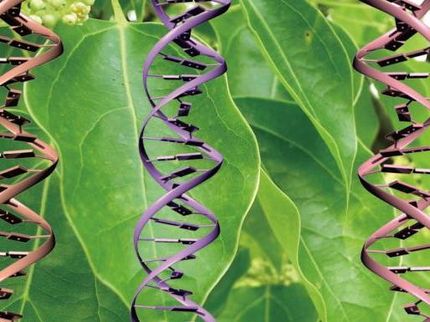SEQUENOM Reports An Important Discovery of Gene Involved in Breast and Prostate Cancer
Advertisement
The recent discovery of common genetic variations in intercellular adhesion molecule (ICAM) genes was announced by SEQUENOM, Inc. and is believed to be among the most important findings in cancer genetics since the discovery of BRCA1 and BRCA2. Published in the December 15, 2004 issue of Cancer Research, the study entitled "Large-scale association study identifies ICAM gene region as breast and prostate cancer susceptibility locus" reports that individuals with a deleterious version of the ICAM gene region have a 40% higher risk of developing breast or prostate cancer compared to those without it.
The data also demonstrated that the breast cancer risk increases to more than 300% in those females with a family history of breast cancer. Due to the high frequency of the variations in the general population, approximately 34% of individuals carry two copies of the deleterious version of this region and are at a higher risk of developing breast or prostate cancer in their lifetime. Originally discovered in a genome-wide search for genes involved in breast cancer, the researchers found that the variations associated with breast cancer risk also confer a similar risk of prostate cancer. These findings may lead to important diagnostic and prognostic applications. Further, since ICAMs are cell surface molecules, they have the potential to offer new therapeutic opportunities for both breast and prostate cancer, the most common cancers in women and men, respectively.
"While the role of ICAMs in the biology of tumor metastasis is well established, for the first time we understand that common genetic variations in the ICAM region predispose a significant portion of the population to higher cancer risk and a more aggressive disease progression. Significantly, ICAMs are also biologically valid targets for development of cancer drugs," stated Charles Cantor, Ph.D., Chief Scientific Officer of SEQUENOM. "We expect to communicate additional research results, which will further support the ICAM genetic connection to cancer and metastasis risk in the near term. As cell surface molecules, therapeutic options for developing treatments that target ICAMs may include the use of monoclonal antibodies or conventional small molecules."
SEQUENOM's proprietary MassARRAY system and large collection of SNP reagents, designed to quickly and accurately perform high throughput genetic analysis, made the discovery of the ICAM genetic variations possible. The initial genome-wide breast cancer screen consisted of more than 500 German cases and controls. Subsequently, the findings were replicated in two independent samples of breast cancer cases and controls from Germany and Australia. More than 700 prostate cancer cases and controls were tested. This study represents an early example of the use of genome-wide, large-scale association studies to identify genes that impact common diseases. Such studies are expected to play an increasingly important role in the identification of common genetic risk factors.
"This is an exciting discovery for SEQUENOM as the utilization of this genetic content fits in with our strategic direction to develop important and innovative diagnostic applications for use with our MassARRAY system," said Toni Schuh, Ph.D., Chief Executive Officer of SEQUENOM. "We believe that the identification of the ICAM genetic variations and subsequent development of diagnostic tests have the potential to improve our understanding of cancer risk for millions of people. Hopefully, this will lead to the development of treatments based on the understanding of the genetic variations in the ICAM region."
Other news from the department science
Most read news
More news from our other portals
See the theme worlds for related content
Topic world Antibodies
Antibodies are specialized molecules of our immune system that can specifically recognize and neutralize pathogens or foreign substances. Antibody research in biotech and pharma has recognized this natural defense potential and is working intensively to make it therapeutically useful. From monoclonal antibodies used against cancer or autoimmune diseases to antibody-drug conjugates that specifically transport drugs to disease cells - the possibilities are enormous

Topic world Antibodies
Antibodies are specialized molecules of our immune system that can specifically recognize and neutralize pathogens or foreign substances. Antibody research in biotech and pharma has recognized this natural defense potential and is working intensively to make it therapeutically useful. From monoclonal antibodies used against cancer or autoimmune diseases to antibody-drug conjugates that specifically transport drugs to disease cells - the possibilities are enormous
























































